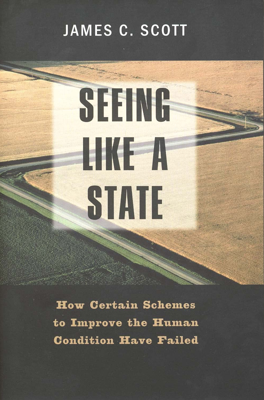Taming Nature: An Agriculture of Legibility and Simplicity
The chapter examines the limitations of traditional scientific agriculture which often simplifies complex agricultural systems to fit state management objectives. The focus is on how these simplifications can lead to systemic failures in agriculture by overlooking the complex, local knowledge and practices of farmers.
Centralization and Simplification of Nature
Scientific agriculture, modeled after industrial processes, emphasizes maximizing yields and efficiency. This involves transforming diverse natural ecosystems into simplified, homogeneous environments to fit the state's economic and administrative frameworks, often ignoring the existing ecological and social intricacies. By focusing on uniformity and elimination of local variations, this approach seeks to make nature more legible, predictable, and controllable, aligning with the modern state's bureaucratic tendencies.
Loss of Ecological and Local Knowledge
The simplification inherent in state-driven agriculture systems frequently results in the loss of local ecological knowledge which embodies deep understanding of complex natural interdependencies. Farmers possess a wealth of practical knowledge accumulated through direct interaction with their environments—knowledge that is often disregarded by centralized agricultural policies favoring a 'one-size-fits-all' approach.
Impact on Society and Culture
The imposition of simplified agricultural models not only affects ecological balance but also disrupts existing social structures and cultural practices related to agriculture. Local practices are often deeply intertwined with community identity, social relations, and cultural traditions, which are overlooked when external agricultural models are imposed.
Resistance and Adaptation
Despite the state's efforts to impose simplified agricultural models, there is often resistance from local communities who continue to practice and adapt their traditional agricultural methods. These practices are typically more sustainable and adapted to local ecological conditions, highlighting a disconnect between state policies and on-ground realities.
Towards Integrative Solutions
The chapter calls for a more integrative approach that respects and incorporates local knowledge and ecological integrity into state agricultural planning. Acknowledging the intricate realities of both nature and society, and moving away from centralization and oversimplification, can lead to more sustainable and equitable agricultural systems. Addressing the tension between local practices and state objectives is crucial for creating agricultural policies that do not just aim for control and efficiency but also enhance social and ecological well-being.
Conclusion
The advocacy for a shift towards considering local practices seriously presents a critical challenge to the traditional methods of state-driven agricultural policies. These insights underline the importance of designing agricultural systems that are sensitive to both ecological conditions and local socio-cultural practices, promoting sustainability and resilience over mere efficiency and control.
